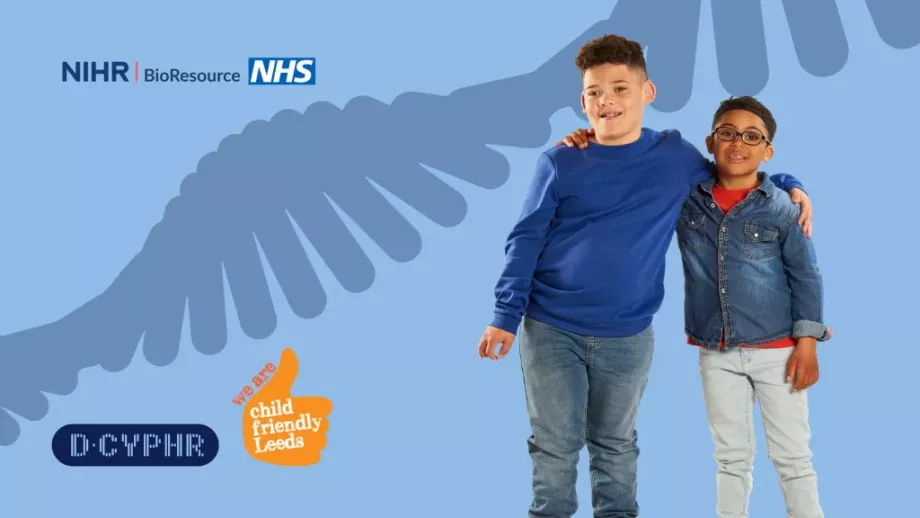Leeds City Council has been leading the way for the past 10 years by benefitting children’s lives through research driven initiatives like We are child friendly Leeds. The Child Friendly Leeds team are responsible for coordinating some of the key work strands that support the citywide ambition.
Just like We are child friendly Leeds, D-CYPHR is constantly expanding and stays dedicated to improving children's health. With a BioResource Centre in Leeds, we work closely with the Leeds Teaching Hospital Trust and NIHR Leeds Biomedical Research Centre to ensure health research is inclusive and representative of all ages, cultures and ethnicities.
Strengthening our ties to children and young people in Leeds, D-CYPHR is working closely with local community organisation Black Health Initiative (BHI). We’ll be attending the Leeds Black Music Festival on the Sunday 25th August alongside BHI, the city council, and more than 150,000 attendees!
The event promises live performances, food, family fun and a great opportunity to come and learn about why taking part in research is so important to health outcomes in the future.
See what We are child friendly Leeds had to say in their recent blog about D-CYPHR:
Over 1.7 million children and young people in England alone live with a chronic health condition, and despite most diseases starting in childhood, to date most health research has taken place with adults.
The right to the best health means that health systems need the best children's health research. Research looks for answers for current problems and makes sure healthcare for children and young people gets better over time.
But how can children and young people themselves take a stand for their own health rights? And how can they exercise their right to be represented in research that affects them?
It is possible – and important – to include the voices of young people in shaping health research.
How?
In the UK, a world first project has opened for all 12 million under 16s in the country to join-in with health research: D-CYPHR – The DNA, Children + Young People’s Health Resource. With parental consent, any child or young person aged 0-15 can join online from home, or via participating clinics, by providing a saliva sample and health and lifestyle information. This data can support a wide range of health research studies. Participants may also be invited to other studies, and can choose to accept or not.
D-CYPHR has also launched a Young Ambassadors programme to highlight the voices of young health champions across the UK, empowering them to take a stand for their own health. These young people have helped shape the programme, giving feedback on the research study materials for families, from official forms to marketing items such as posters.
Launched by NIHR BioResource and the NHS and young people’s mental health charity ‘Anna Freud’ in the summer of 2023, D-CYPHR now more than 5,000 volunteers signed up and has begun inviting its pioneer families and young people to take part in health research studies. Researchers apply to access D-CYPHR and if approved, can work with data and invite volunteers to studies. We are now at the exciting stage where young volunteers have an opportunity to help select the studies that are approved.
Elizabeth Mordey, Senior Study Coordinator for D-CYPHR at the NIHR BioResource
"We have reached a point in D-CYPHR where researchers are applying, and we are actively working with our young people and family groups, to get them to shape how they get their say. We are asking them how we should present studies to young people, how far do they feel they need to be involved, and what is the best format for getting young feedback. We are also working with different patient and public groups, cities and hospitals across the country for their opinions.
"It has been wonderful to hear from all the young people involved; they give us unique and astute insights we wouldn’t have thought of. This is vital for our process – we need to hear from children, young people and their parents all over the UK to make sure health research benefits and reflects everyone."
Become a part of the D-CYPHR programme
Any child aged 0-15 in the UK can join D-CYPHR and help the future lives of children.
We need to learn a lot more about childhood health. We also need to understand how genetics and environmental factors affect children as they grow and develop.
D-CYPHR has focus areas on a number of conditions including: diabetes, mental health conditions, heart disease, rare diseases, immune conditions, and childhood nutrition.
Become a DNA hero today and get involved in the programme. It really is as simple as helping others from home by spitting in a tube.



